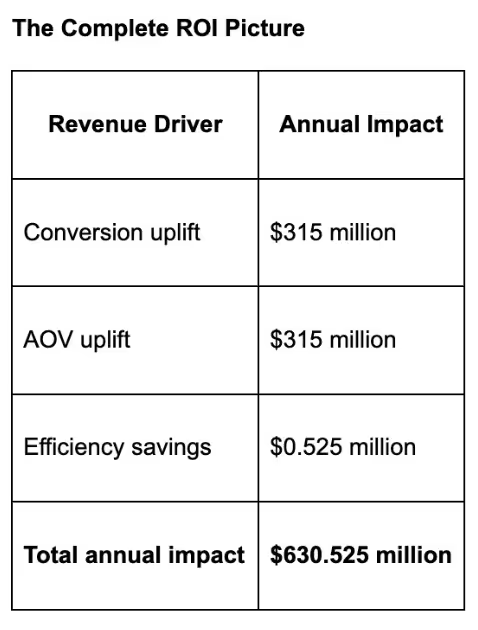What Causes Revenue Loss in Automotive Digital Marketing?
Picture this scenario: Your dealership group generates billions in annual revenue, yet operates on razor-thin margins that would devastate most industries. New vehicle sales barely reach 2-3% margins. Used vehicles offer 12-15%. Meanwhile, more than 70% of your profits now flow from service operations (including F&I), but here's the alarming reality: you're losing the majority of service customers within 24 months due to inadequate digital engagement.
The numbers speak for themselves. Over 60% of your annual marketing budget goes into digital campaigns, yet only 2% of campaign visitors convert into qualified leads - not customers, just prospects showing interest. That means 98% of your spend drives no measurable ROI, while the average cost per lead now stands at $42.95. This isn't a marketing challenge; it's a strategic revenue hemorrhage that demands immediate attention.
How Do Car Buyers Research Vehicles Before Visiting Dealerships?
Today's automotive landscape has fundamentally shifted. Modern car buyers complete over 90% of their research online before stepping foot in any showroom. They visit an average of 1.2 dealerships compared to 4.5 in 2015. By the time prospects reach your lot, the decision has already been made. Your website either secured the sale or lost it weeks earlier.
This behavioral transformation creates both unprecedented challenges and remarkable opportunities. Customers now expect instant, intelligent responses to complex questions about financing, features, and trade-in values. Traditional lead forms and voicemail systems fail to meet these expectations, creating massive conversion gaps.
What Is the Market Size for Automotive AI in 2025?
The timing couldn't be more strategic. The conversational AI market achieved $13.6 billion in valuation during 2024 and is projected to experience remarkable expansion at a 21.95% compound annual growth rate, ultimately reaching $100.8 billion by 2034.
Even more compelling is the automotive AI sector specifically. The global automotive AI market, valued at $10.88 billion in 2024, is projected to experience explosive growth at a 61.50% compound annual growth rate, reaching $17.56 billion by the end of 2025, driven by accelerated adoption of AI in both vehicle technology and customer-facing solutions. Industry experts are widely recognizing 2025 as the breakthrough year for automotive AI adoption, with dealerships ramping up investments in AI-powered customer service and sales solutions more than ever before.
How Does Conversational AI Help Automotive Dealerships Increase Sales?
Conversational AI represents more than technological advancement; it's a paradigm shift that addresses the core disconnect between customer expectations and dealership capabilities. Unlike basic chatbots, enterprise-grade conversational AI powered by advanced language models creates human-like interactions through voice and chat that guide prospects through the entire purchasing journey.
Consider this opening interaction: "Hi there! I know car shopping can feel overwhelming. Are you looking for help with budget, safety, or just finding something reliable today? I’m here to help you until the very end!”. This simple question eliminates confusion, reduces friction, and immediately begins the qualification process.
Modern AI agents accomplish what traditional sales processes cannot: they provide expert-level guidance instantly, operate 24/7 without breaks, qualify leads while your team focuses on closing, and minimize decision fatigue through personalized recommendations.
Why Are Automotive Companies Adopting AI for Customer Engagement?
Major technology companies are embedding AI into every customer touchpoint. Amazon integrates AI into search and recommendations. Google weaves AI throughout commerce journeys. Automotive platforms now offer conversational commerce tools as standard features.
This shift transforms the traditional sales funnel from linear to conversational. Customers expect intelligent, real-time interactions that help navigate complexity. In automotive sales, where financing options, vehicle features, trade-in values, and personal preferences create countless variables, conversational AI becomes invaluable.
How to Implement Enterprise AI Solutions in Automotive Dealerships
Modern conversational AI solutions like Kleio deliver immersive user interfaces that adapt individually to each dealership's website design, branding, and customer journey. This isn't a one-size-fits-all widget; it's a fully customized digital sales layer that integrates seamlessly with your existing web presence.
The omnichannel approach extends far beyond website interactions. Customers can engage through WhatsApp for test drive bookings, continue conversations via email, and receive personalized follow-ups through their preferred communication channels. This creates a unified experience that meets customers wherever they are in their buying journey.
Deep data integration capabilities connect with live inventory systems, CRM platforms, financing databases, and trade-in valuation tools. The AI accesses real-time information to provide accurate pricing, availability, and personalized recommendations based on customer preferences and browsing behavior.
Enterprise-grade security ensures GDPR compliance, industry-leading encryption, robust authentication protocols, and 24/7 monitoring. For dealership groups handling sensitive financial information and customer data, these security standards aren't optional; they're essential for maintaining trust and regulatory compliance.
What ROI Can Automotive Dealerships Expect from AI Implementation?
The financial upside of implementing conversational AI in automotive sales is not just about modest improvements. It's about unlocking hundreds of millions in incremental value across three core drivers:
1. Conversion Rate Transformation
Let’s start with a high-traffic enterprise dealership group attracting 150,000 website visitors monthly.
- Website visitors: 150,000/month
- Conversion rate: 2%
- Sales: 150,000 × 2% = 3,000 cars/month
- Average vehicle price: $35,000
- Monthly revenue: 3,000 × $35,000 = $105 million
- Annual revenue: $105 million × 12 = $1.26 billion
After 25% Conversion Rate Lift
- New conversion rate: 2.5% (25% increase on 2%)
- New sales: 150,000 × 2.5% = 3,750 cars/month
- New monthly revenue: 3,750 × $35,000 = $131.25 million
- New annual revenue: $131.25 million × 12 = $1.575 billion
- Uplift from base revenue: $315 million ($1.575 billion – $1.26 billion)
2. Average Order Value Enhancement
AI agents excel at upselling - whether it’s extended warranties, premium accessories, service packages, or financing add-ons. Industry benchmarks show a 15–30% increase in average order value (AOV) from effective AI-driven upselling.
Assuming a 20% AOV uplift, the ticket value climbs from $35,000 to $42,000. Applying this to 3,750 monthly sales, revenue rises to $157.5 million/month, or $1.89 billion annually.
Incremental impact from AOV increase: an additional $315 million per year ($1.89 billion- $1.575 billion).
3. Operational Efficiency Gains
Dealerships typically field 6,000 inbound inquiries each month, but 60% are low-intent, wasting valuable sales time.
Conversational AI filters and qualifies these instantly, enabling reps to focus only on high-intent prospects. This leads to an estimated $525,000 annual savings in labor and lead-handling costs.
Annual cost savings from efficiency: $525,000.
The Complete ROI Picture

Even with conservative assumptions, conversational AI enables a dealership group to grow from $1.26 billion to nearly $1.89 billion in yearly revenue, while simultaneously reducing waste. That’s over $630 million in value unlocked by intelligent automation - no bottlenecks, no missed opportunities.
The Strategic Imperative
Today's automotive buyers demand personalized, immediate, and helpful experiences. Dealerships providing these experiences will capture market share. Those failing to adapt will continue burning marketing budgets on leads that never convert.
Conversational AI isn't merely a support tool; it's a strategic growth lever that enhances conversion rates, reduces customer acquisition costs, and improves lifetime value. For high-volume dealerships and automotive groups, implementation represents competitive necessity rather than optional enhancement.
The question isn't whether to implement conversational AI, but how quickly you can deploy it to capture the millions in revenue currently walking away from your digital touchpoints.
How to Get Started with Automotive AI Implementation
Kleio offers a 30-minute executive strategy session designed for dealership groups and enterprise leaders. This includes:
- Digital performance analysis
- Custom ROI projection
- Pilot integration plan
- Full stakeholder Q&A
Request your executive session today.https://calendly.com/adrien-kleio





.avif)




.avif)
.avif)




